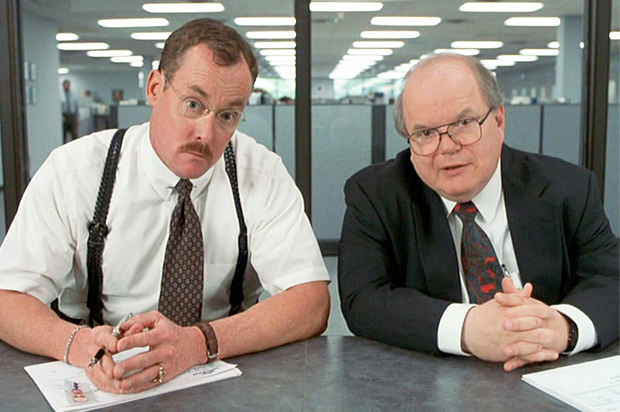I remember back at the… second (?) Open Source Hardware Summit, where Bre Pettis tried to explain (justify?) that the MakerBot Replicator 2 would not be an open design. I honestly don’t remember much of what was said, but I remember the mood in the room – it was dead quiet. It was as if this was the guy that single-handedly sold out the open source community. But this isn’t the story of MakerBot, or even to comment on whether or not what happened with them was right or wrong. If you want to catch up on those guys, check their wiki page. It reads a bit like a corporate monkey knife fight.
Photo courtesy of Flickr
The bigger question is whether or not there even is a “right” path. Can an open project go closed at any point? For that matter, why would the project owners want to go closed? And why start with open hardware in the first place?
For the vast majority of the people likely to read this, open source is a great thing. Open communication, transparency and a free exchange of design information helps us to create. It speeds up the process and makes for better designs. More than that, open source licenses help to protect the little guys from big companies trying to retroactively assert a patent on top of their previously open work. But as important, it gives us a sense of community, a connection to something greater than ourselves.
But let’s examine that more closely. In the end, every last company is in business to make money. How do you do that? You sell stuff, either goods or services. And as companies grow, the natural trajectory is to become bigger, move more product and take in even more money. How do you do that more effectively? You try to exert more control over your market, either by convincing potential customers that your products are better than anyone else’s, or by making it impossible for them to get products like yours anywhere else. I would submit that the former is healthy competition that benefits customers at large, and I believe open hardware fosters this. I would also submit that the latter isn’t based on the needs of the consumer at all, rather the needs (or wants) of the company.
Hey, it's The Bobs.
I don’t mean to say that non-open companies are evil. There are plenty of examples of markets where designs are closed and there is tons of relatively “fair” competition, but the companies of interest just don’t share design info. They make their employees sign noncompete agreements and such, and we don’t really spend a lot of time criticizing them, because why bother? They most likely started off as a closed endeavor, so whatever. If I need a new toaster, I’m not going to go the distance to find one that’s an open design. Does that make me a fair-weather altruist? Maybe, but you gotta pick your battles, and the average person only has so many hours in the day...
This becomes far more complicated the deeper we go, and my thinking diverges in several directions at this point. Is it wrong for a previously open company to go closed? If a large company approached me with a big offer to buy me out of my little open company, would I be able to say no? Financial independence is very attractive, and it would allow me the ability to work on whatever I wanted without any hindrances, spend as much time with my family as I wanted, etc. Being altruistic is easier when you don’t have dependents, less so when you do (and by “dependents” I don’t mean just real, flesh-and-blood children. All of my projects and interests are "children" demanding attention).
For that matter, what does success look like for an open source company? Is it financial success? Is it getting bought out by Google? And if you’re an open company, what would you offer a potential purchaser for their money? It isn’t intellectual property, I can tell you that. You can give them access to the community that’s grown around your open company, you give them the brand name, you give them physical assets (parts stock, machines, etc)... but without IP, it’s a much bigger gamble for them. So do you create IP? As we’ve seen, the open source community can turn on you remarkably quickly for a move like that, and I know of at least one company in our little community that’s struggling with that possibility right now.
Photo courtesy of DIOA
As with most of the topics I write on, I’m sure I’m grossly oversimplifying the issue. But here’s my take (you’re under no obligation to agree): once open, always open, if for no other reason than your audience will continue to demand it and you need them to survive. But open source pursuits have difficulty with increasing revenues and increasing audience size - it’s not impossible, but it seems to be more difficult to be huge and attentive to your community. And at some point those two things need to find some kind of equilibrium. Where does that equilibrium occur? I have no idea. In this bizarre utopian image of the future that I maintain, I imagine companies like ours being more like regional entities with smaller audiences so that we can better serve and contribute meaningfully to the open source community, free of the ethical compromises that plague larger entities, and free to be creative with less concern for the bottom line.
And everybody gets a pony and a big chocolate cake.









Think everyone is missing the big question here. If you are just dumping Open Source over the wall, like Google with Android for example, then you can go closed. Once you take contributions from the outside, once you actually take the benefit of Open Source, whether it is under a BSD like license that technically allows it or not, you ARE going to make enemies. If you are using a copyleft style license of course you can't go closed unless you get every contributer to relicense or dump their contributions.
One other consideration. Closing your source does NOT take back the stuff already given away so what usually happens is a fork from the last open version begins in the community while your closed version must compete against it. Ask those who have tried that model how it worked out. Best to do it right as you merge in some major, labor intensive and hard to replicate new functionality.
And second the recommendation to read CatB, all this stuff was carefully argued way back then and still applies today. ESR sold much of the corporate world on Open Source with that book.
A little bit of trolling (on my part) here. Per my inalienable right to make rash generalizations, have found that the most creative and open makers tend to be formally-trained STEM types. Those that tend to less open and are more likely subject to emit corporate hyperbole are the artistics, accountants, sales, and managers. The most blazing bright examples of open makers are those such as Limor Fried and Nathan Seidle. An example of a more pragmatic and measured approach to 'openness' would be Paul Stoffregen.
There are those makers that are skilled crafts people and engineers. And there are those makers that only (metaphorically) build leggo structures from kit instructions. The latter is not 'wrong', but are simply subject to their personal limitations, which includes Bre Petis.
https://en.wikipedia.org/wiki/The_Cathedral_and_the_Bazaar
I am stoked someone referred to this.
Had not read it before today, thanks for the link!
My thoughts:
Something I am not going to mention in any detail is company's contracts. Whoever they have contracts with can also kinda dictate if they want it open or not, or if certain parts need to be closed (think government related).
I'm seeing my company going into open source as a way to help customers build innovative ideas that can be leveraged further! Sometimes, the best employees are not employees, but the creative people who can find a solution to a problem through open source.
"Open -> Closed..." If you mean they're not prepared to continuously innovate to retain market share, then yeah I'm right with you. You've got your one-trick pony to which a bunch of people have ultimately contributed, and you're more interested in protecting that rather than working with the community to make it (and other options as a result) better. And outside investors will push a company to be closed, as well. But I think contract work is a different animal - your paycheck comes from them, you do what they say, that's just the agreement. If that sort of thing doesn't appeal, don't go there in the first place. We tend to avoid it.
A company cannot be 100% open source nor a product designed for profit purposes. As Pete reminded us, companies need to make money and it is totally fair if business' owners decide not to share their IP. When dealing with hardware development, maybe custom software could be a way to generate value out of an open source design(if applicable) and viceversa. Security is an important aspect to consider when working with open source technology. I can see companies sharing their hardware and software designs/developments while keeping security layers undisclosed to assure comercial value to their potential investors. One thing is certain, more people should be talking about this!
I have found that open source hardware and software market has been destroyed by those in foreign countries with cheap labor. They simply copy the open source hardware and software and compete with cheap pricing and zero support. In most cases they expect the open source community to support their products. There are dozens of examples of 3D printer parts and in some cases complete printer clones that get sales because the customer thinks cheaper is just as good because Amazon or Ebay carry it. The original company will not last long just supporting cheap clone knockoffs. Going close source with some proprietary technology will at least give them a fighting chance with the cheap clones.
I don't blame them for trying to survive.
When someone is allowed to consult a catalog free of charge, it is a form of open source.
Maybe I'm too pie-in-the-sky, but I hate the trope:
That sort of attitude tends to lead to pro-business decisions that end up being anti-customer. Businesses should be there to provide goods and services. The making money part should only be part of the mechanism to sustainably provide those goods and services, not the other way around. When money is the end goal, greed takes over and customers for the goods and services suffer.
Abso-freaking-lutely! I hate that that's the world we live in. I was more idealistic about all of this when I was younger (obviously), thinking that those high ideals could eventually be achieved. And maybe they can, but I'm older and far more cynical about it these days. I also recognize that a business has got to make money or it's going to fail. (Ug - growing up sucks.) And if a company gets big enough, or the competition gets fierce enough, those compromising values will eventually creep in. That's a worse position for the consumer and becomes a worser place for the company that's forsaken it's original values.
This whole money-first attitude isn't helped by organizations that are publicly held either: Suddenly you have thousands of other people who now own a (typically tiny) piece of your organization, and the only thing they are interested in is getting more money back.